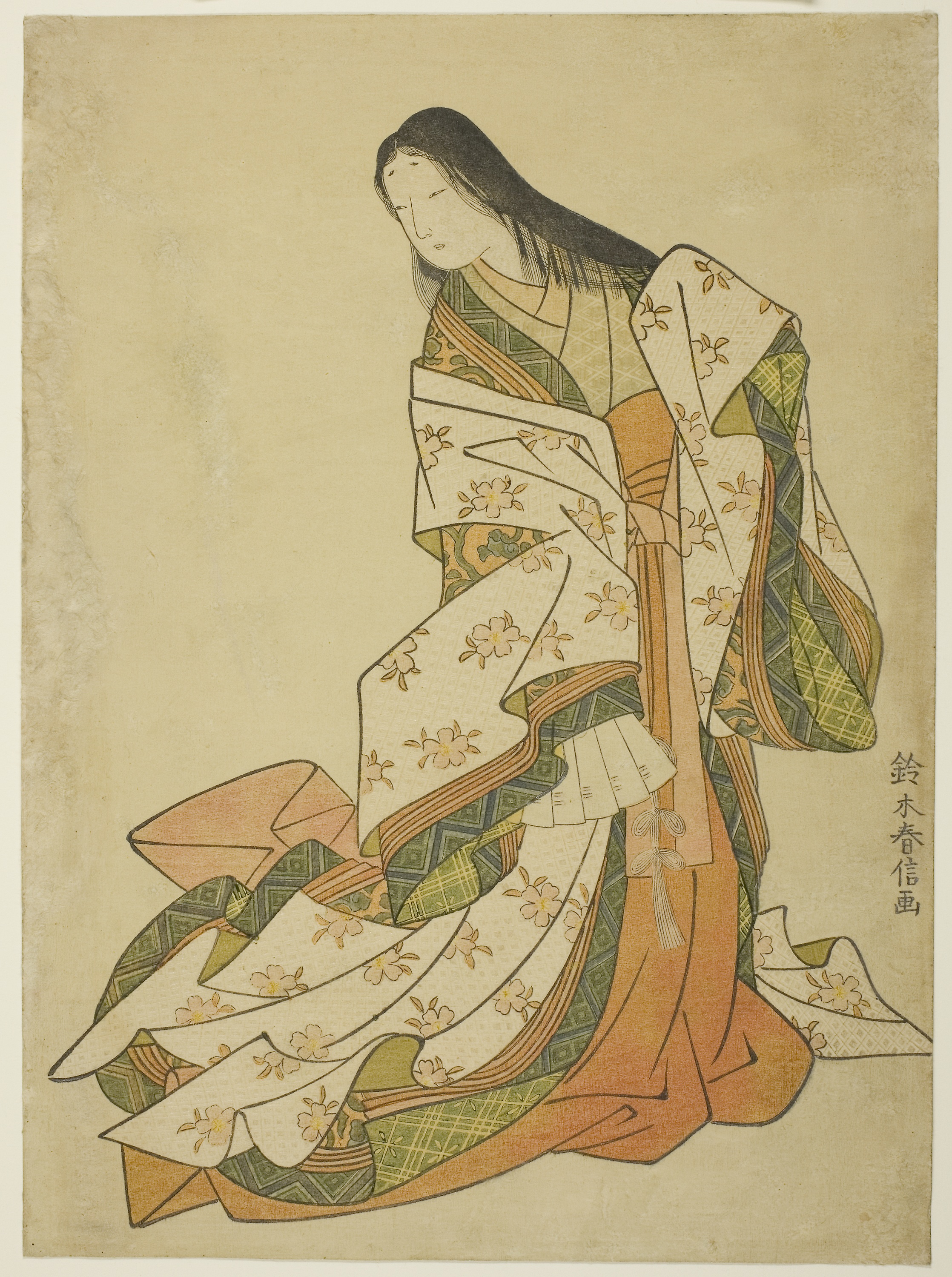Fuente: Yone Noguchi's [The Spirit of Japanese Poetry] (1914), p. 112
Ono no Komachi: Frases en inglés
Fuente: Helen Craig McCullough's translations, Kokin Wakashū: The First Imperial Anthology of Japanese Poetry (1985), p. 174
Fuente: Donald Keene's Anthology of Japanese Literature (1955), p. 78
Fuente: Kenneth Rexroth's translations, Women Poets of Japan (1982), p. 15
“Imperceptible
It withers in the world,
This flower-like human heart.”
Fuente: Kenneth Rexroth's translations, One Hundred Poems from the Japanese (1955), p. 46
Fuente: Kenneth Rexroth's translations, Women Poets of Japan (1982), p. 15
Fuente: Helen Craig McCullough's translations, Kokin Wakashū: The First Imperial Anthology of Japanese Poetry (1985), p. 35
Fuente: Kenneth Rexroth's translations, Women Poets of Japan (1982), p. 14
Fuente: Kenneth Rexroth's translations, One Hundred More Poems from the Japanese (1976), p. 34
Fuente: Helen Craig McCullough's translations, Kokin Wakashū: The First Imperial Anthology of Japanese Poetry (1985), p. 206
Fuente: Kenneth Rexroth's translations, One Hundred More Poems from the Japanese (1976), p. 33
Fuente: Helen Craig McCullough's translations, Kokin Wakashū: The First Imperial Anthology of Japanese Poetry (1985), p. 142
Fuente: Donald Keene's Anthology of Japanese Literature (1955), p. 79
Fuente: Donald Keene's Anthology of Japanese Literature (1955), p. 78
“A thing which fades
With no outward sign—
Is the flower
Of the heart of man
In this world!”
trans. Arthur Waley, p. 78
Donald Keene's Anthology of Japanese Literature (1955)
